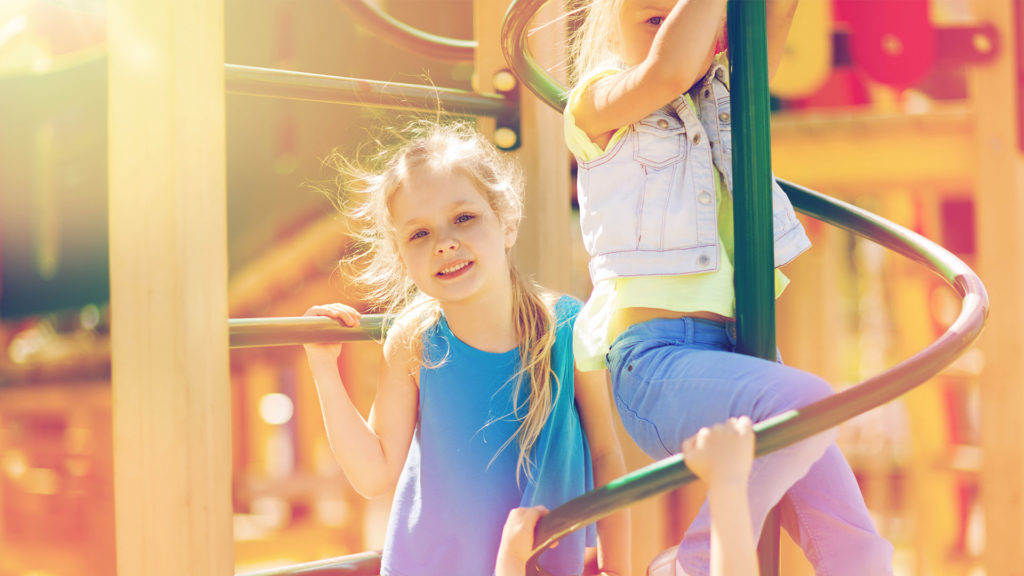Long before Zuckerberg thought of Facebook, before Monica found her Rachel and Laverne found her Shirley, even before there was Charlie Brown and Linus, Winnie the Pooh understood that, “Good friends will stick with you until you’re unstuck.”
We are social beings; friendships are important at every stage of life from early on, so much so that some recent research has pinpointed the role of friendships as a highly influential and oftentimes overlooked factor in mental health/wellbeing, physical health (low blood pressure), job satisfaction, and overall functioning. Simply put, life is just better with friends. But sometimes the world of friendship can make for tricky waters to navigate.
As the late child psychiatrist, Stanley Greenspan, explains, “A new world of complex relationships and feelings opens up when the peer group takes its place alongside the family as the emotional focus of the child’s life. Early peer relationships contribute significantly to the child’s ability to participate in a group (and in that sense, society), deal with competition and disappointment, enjoy the intimacy of friendships, and intuitively understand social relationships as they play out at school, in the neighborhood, and later in the workplace and adult family.”
The playground makes for formative learning in a child’s life — and parents can impact social development at different stages:
Early Childhood
Does your child naturally show interest in others by observing them play or by joining in? If you see limited interest or difficulty with an age-appropriate fair balance of give-and-take in play, facilitate play dates from time to time or engage in “people watching” with your child, using simple language to narrate playful interactions that you observe between kids on the playground. At this age, relationships with family members are the major ingredients of social-emotional development, but a pinch or two of peer play adds a good measure of sweetness.
Preschool through Early School Age
Testing the bumpy waves of cooperative play in preschool and kindergarten can make for some bigtime kid drama. We’ve all seen it. Cue a scene in an episode of Family Ties in which Alex P. Keaton asks his younger brother, Andy, what he thinks of sharing, and Andy’s response is a big thumbs-down. We see the egocentricity of childhood rear its not-so-sweet face more than ever during this stage, but there are some good tricks to coaching along our kids’ social know-hows. Social stories or social story videos, for example, may be helpful- simple stories that walk a child through how to respond when a classmate takes a desired crayon or when a friend always claims first dibs on the scooter. Intentional efforts across the multiple opportunities each day to teach our children sharing, turn-taking, waiting, self-advocacy, gratitude, temper-control, and helpfulness pay dividends.

Elementary Age
Industry vs. inferiority is the developmental conflict that developmental psychologist, Erik Erikson, pinned to this stage. School-aged kids start realizing the importance of their abilities and the fruit of their labor, which builds competence and confidence. As parents, we support their social competencies as we weigh in on the playground politics that become trickier as the school year progresses, helping our kids make sense out of the dynamics while welcoming their insight and problem-solving. We also recognize that if we seize this window while we have it, and if we’re observant, we can handpick some excellent friends for our kids. If the stars align, some of these friendships can last a lifetime.
Tweens-Teens
We all remember the horror of the locker room during this stage, and in today’s system, everything starts earlier- the awkward conversations, the body image issues, the unfairness, the insecurities, the responsibilities, and now the begging-for-iPhones and social media drama. This may have always been the case, but it seems like as technology has become an inevitable influence in our society, a lot of kids out there are growing up in some ways before they’re ready. We have the challenging responsibility as parents to set appropriate boundaries for our kids in terms of the media that they have the propensity to ingest. Guiding our kids to expand their interests outside of devices/electronics is a gift that keeps on giving at this stage, and encouraging a healthy measure of participation in extracurricular activities will not only foster passions and purpose, but will allow for special friendships built around common interests.
Parents are in the unique position of spurring along emotional growth, self-control, ingenuity, and empathy in our kids, but the roles of coaches, teachers, and grandparents are also vital to social-emotional development. Coaches have a unique role of fostering a sense of personal responsibility and accountability to a team, and a genuine appreciation and championing of others’ gifts and talents, while teachers are privileged with daily prospects to facilitate the fostering of friendships through paired learning opportunities, lunchtime conversations, and playground games.
As the school year starts, recognize the special significance that friendships will inevitably play in your child’s learning and development this year, and make a point to encourage healthy social development… the year 2027 will thank you.
By Wendy & Craig Mullins, Psychotherapists at LMB, Live. Move. Be.

